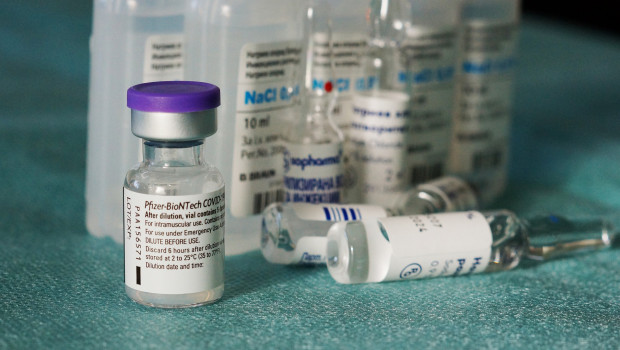Omicron likely to fall 'some way short' of apocalyptic reboot of pandemic, Pantheon Macro says

Pfizer Inc.
$27.13
11:05 07/01/25
Analysts at Pantheon Macroeconomics believed the most likely outcome from the appearance of the new SARS-CoV-2 variant, Omicron, would be "some way short of an apocalyptic reboot of the pandemic."
AstraZeneca
10,668.00p
17:15 07/01/25
BIONTECH SP ADS
$126.88
12:14 07/01/25
FTSE 100
8,245.28
17:14 07/01/25
FTSE 350
4,537.45
17:14 07/01/25
FTSE All-Share
4,493.46
16:44 07/01/25
MODERNA
$47.53
13:09 07/01/25
Pharmaceuticals & Biotechnology
20,367.63
17:14 07/01/25
According to Ian Shepherdson, chief economist at Pantheon Macroeconomics, if current estimates of the virus's reproduction rate in Guateng province, in South Africa, were accurate, then Omicron's basic reproduction rate, or R0, lay at around 8.5.
That meant that each infected person would pass it on to another 8.5, whereas the equivalent number for the Delta strain stood at 6.5.
Shepherdson's estimates were based on estimates from epidemiologists at Cambridge of Omicron's current reproduction rate and what could be inferred about its relative underlying infectiousness.
Such an increase in the reproduction rate would only push the threshold for reaching so-called 'herd immunity' in the population, or the proportion of people who need to have immunity either through infection or prior vaccination, from 85% to 88%, he said.
"Any increase in the herd immunity threshold is unwelcome, but three percentage points is not a catastrophe," Shepherdson added.
Nonetheless, should the mutations in Omicron allow the virus to evade immunity to Delta and also cause disease as severe or worse than Delta, then "things would be different".
On that last score, Shepherdson said that: "the good, if preliminary, evidence suggests that Omicron does not cause more severe disease."
At the weekend, the chair of the South African Medical Association had told BBC: "[From] what we are seeing clinically in south Africa [...] it's extremely mild."
Yet Shepherdson noted that most Omicron cases thus far had been among young adults and that no one knew what might occur once they reached older South Africans.
Another possible piece of good news could be that the efficacy of Pfizer´s new treatment for Covid-19, Paxlovid, might not be reduced by mutations on the virus's so-called spike protein, because it binded to an enzyme inside the virus.
In clinical trials, the treatment had reduced hospitalisations among Covid-vulnerable people by 89% and deaths down to to zero.
"If it is equally effective against Omicron, and production can be ramped up quickly—Pfizer has applied for FDA emergency use authorization—then Omicron will at worst trigger only a temporary interruption to the economic recovery, and markets will rebound," Shepherdson said.
By regions, the economist judged that the UK was in a better position than the rest of Europe, were immunity from prior infection was lower and the rollout of boosters had been slower.
Hence, "the rapid spread of Omicron would make a bad situation worse," he added, and further lockdowns "likely".
The UK on the other hand was in a "much better position" after administering twice as many booster doses as other European countries and the US, and with immunity from prior infection higher".
So new lockdowns were unlikely except in the worst case scenario.
In China meanwhile, each new incrementally more infectious variant made pursuit of zero Covid cases more difficult although the policy was likely to be maintained.
That meant that one should expect continued disruptions to manufacturing and logistics chains.
Shepherdson's worst case scenario for Omicron was that it was indeed more transmissible than Delta, as well as able to evade immune responses from vaccines or prior infection, caused more severe disease, and reduced the efficacy of Pfizer's antiviral drug, Paxlovid.
"Under those conditions, the next few months would be extremely difficult, with anti-Covid measures being reimposed in order to prevent a meltdown of the healthcare system. [...] None of the four conditions required to trigger this scenario are guaranteed to happen. Definitive answers to these questions will emerge over the next few weeks, but we think the mostly likely outcome is some way short of an apocalyptic reboot of the pandemic."